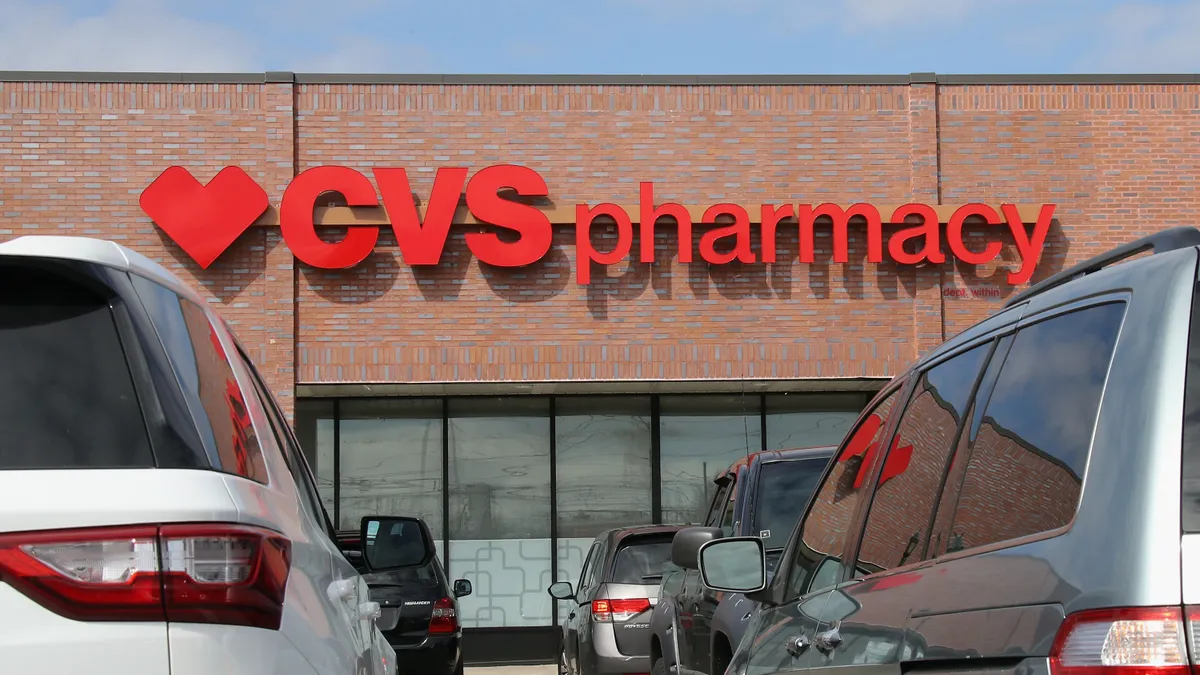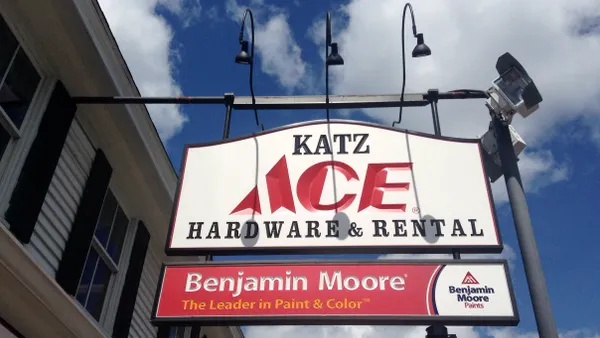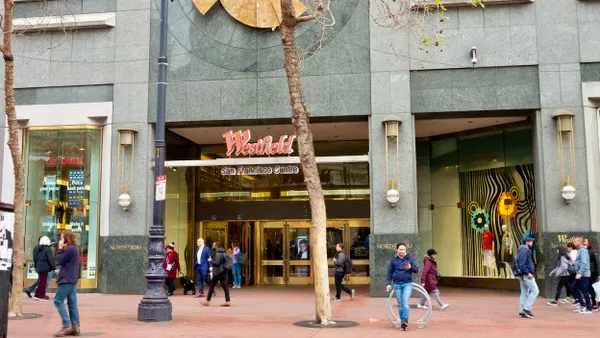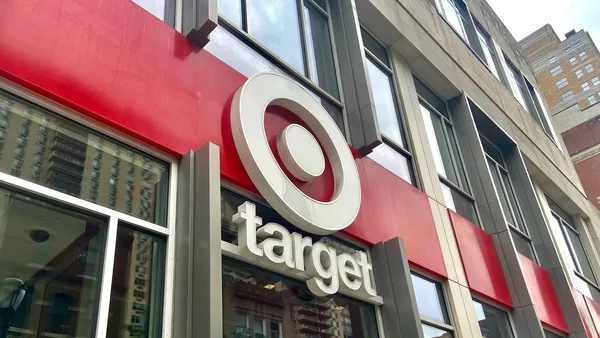Dive Brief:
-
Speaking at its analyst day event Thursday, CVS Health executives outlined their long-term strategy for growth, which includes closing 70 stores in the coming months.
-
The drugstore retailer's overall cost-cutting plans aim for $3 billion in savings from 2017 to 2021.
-
In addition to store closures, CVS Health CFO Dave Denton said the company is finding efficiencies in corporate shared services that promise to drive down labor costs by 15% to 20%. For retail, that might include instructing overnight pharmacists to provide data entry during the slow hours, he said.
Dive Insight:
Both Denton and CVS Health CEO Larry Merlo Thursday sought to reassure investors that the company’s integrated model of health care services, which includes retail pharmacy, pharmacy benefit management and clinical care, remains a highly competitive one, with better opportunities for growth, despite anticipated changes in heath care policy (and despite the loss of its Tricare military services contract to rival Walgreens). The company reaffirmed its guidance for fiscal years 2016 and 2017, missing expectations from Thomson Reuters I/B/E/S, and now expects diluted earnings for FY2016 range between $4.82 and $4.88 per share in 2016 (below the $5.81 per share view from Thomson Reuters I/B/E/S) and for FY2017 to range between $5.02 and $5.18 (below the $5.87 view from Thomson Reuters I/B/E/S).
While CVS executives often sounded more like they were talking about a healthcare business than a retail one, it’s the retail business that presents one of the company’s biggest advantages in a market that is increasingly sensitive to consumers as well as payers, according to Merlo.
"We own the last mile of service in the delivery of healthcare,” Merlo said Thursday. “If you think about all of our enterprise assets, each one delivers care directly to the healthcare consumer. And keep in mind that retail pharmacy is quite often the front door to healthcare, with the highest frequency of patient interaction. The face-to-face interactions between patients and our 30,000 pharmacists and clinicians provide us with an unmatched ability to help change consumer behavior and drive better health outcomes at a lower cost. With increasing consumerism and what we call the ‘retailization’ of health care, improving clinical outcomes and patient satisfaction is of significant value to our healthcare partners."
Republicans in Congress have promised to repeal the Affordable Care Act, which has driven up healthcare coverage and provided opportunities for CVS, and president-elect Donald Trump has said the law needs to be changed. That’s introducing new uncertainties into an evolving market where coverage was rising and costs falling.
The need for coverage and cost-effectiveness will nevertheless remain, Merlo said. And while Medicare and Medicaid — the two largest government-run healthcare programs in the U.S. — have lower margins, they are big enough to have higher utilization than the private sector, and therefore provide huge opportunities to CVS, executives stated. In Medicare in particular, CVS’s Medicare Part D prescription drug plan, SilverScript, is the largest. Under this scenario, despite the uncertainties, Merlo said the healthcare system is increasingly geared toward lowering costs, in part because it’s becoming a more consumer-driven system.
“By making care more affordable, accessible and effective, we can deliver value to all health care stakeholders, allowing us to be a partner of choice as they look to achieve their health care goals,” Merlo said. “Despite all the changes happening in healthcare, success will ultimately be determined by how effective you are at executing on these three objectives. And we remain confident that CVS Health is well-positioned to deliver on all three.”















